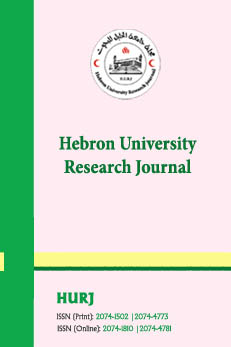Health Economics and Management
Course description
View Course description as PDF file:
71701 Epidemiology
The course is an introductory course to epidemiology for healthcare professionals in the second-degree learning. It aims to provide some knowledge in disease epidemiology within the population context in the community. Concepts analyses and evaluation of evidences is an integral part of epidemiology and in studying the population, which will be incorporated in this course
71702 Health Economics
This course will introduce students to the economics of the health care system. Discussions of microeconomics analysis will include consumers and providers of healthcare services, as well as insurers in the healthcare market. Discussions of macroeconomic perspectives will include the role of governments in the healthcare market and market failure in health. Healthcare financing and payment methods will take part of the discussion, with special attention to Palestine. Finally, importance of economic evaluation in health will be addressed.
71703 Financing Health Care
This course aims to give students a thorough grounding in health financing policy. It focuses on the health financing functions of collecting revenue, pooling funds and purchasing services, as well as on policy choices concerning coverage, resource allocation and market structure. The course mainly draws on examples from health financing policy in local, regional and other countries, but the general principles studied apply internationally
71704 Healthcare Management
This course will introduce students to the management of the health care system as a constituent of public health practitioners. It focuses on diverse managerial functions, processes and roles, and enhancing students’ managerial skills to advance their capacity as decision makers both at the macro and micro levels. It includes the core themes of organizational behavior and fundamentals of organizational behavior e.g. studies on motivation, leadership, power and influence, groups, culture, management functions and managerial roles, effective communication, decision-making, and management of organizational change and development
71705 Health Research Methodology
The course explores the healthcare sector from the side of scientific research. It equips the students with the necessary skills and knowledge to conduct scientific research in health, taking into consideration the uniqueness of the healthcare sector and the epidemiological context of the population targeted for such research endeavors. The course will concentrate on the quantitative methods of health research, as well as the qualitative methods, including several topics in this context; such as articulating the research question and problem, identifying the target population and sample, and choosing the proper research design and tools for data collection.
71706 Biostatistics for Health Sciences
The biostatistics course is a special statistical course designed for health personnel with no prior knowledge in statistics or math. It will use the abstract methods of statistics to convey new knowledge and skills to the students at a master level of study in order to be able to understand scientific papers data and analysis, prepare their own data sets for their master research paper, and analyze and defend their results in their researches. Descriptive and analytical statistical processes will be discussed in class and through extensive exercises both based on manual and electronic methods of analysis; including software programs such as SPSS and Stata. Presentation of data and results with graphs and tables will be explained in the context of health research. Several statistical tests and concepts will be clarified and taught in the context of hypothesis testing and approval. First, second and third levels of statistical analysis will be explored to enable the student to conduct robust scientific research in the real-life health field situations, including parametric and non-parametric methods of analysis
71707 Economic Evaluation in Healthcare
The course aims to introduce the basic principles of economic evaluation of health programs and technologies. It is designed to introduce the fundamentals of economic evaluation process in health care systems and programs
71708 Thesis
This is the second phase of the research component of the program and is expected to equip the student with knowledge and skills in data cleaning, analysis and presentation. The thesis is expected to be a significant contribution to the area of health system economics and management
71711 Introduction to Health Sciences
This introductory course explores the diversity of theoretical health perspectives, and illustrates the many ways in which health may be studied and how ideas from different disciplines contribute to health sciences. The course is designed to show how there are different epistemologies or theories of knowledge for studying and trying to understand health. This course provides students with an overview of issues central to the health sciences and careers in the field of health. Issues to be addressed include: chronic illness and death, social support and health, the relationship between patients and health care providers, the health care system in Palestine and around the world. Through the discussion of classic and cutting-edge research, students will develop an appreciation for the vast array of complex issues central to this emerging and applied field
71713 Strategic Planning for Healthcare Organizations
The course is designed to explore the main ideas of strategic planning in healthcare. It incorporates the use of several analysis methods, theories and tools for the strategic planning process within the health sector. Of the topics to be discussed in class are the analysis of strategy options, internal and external organizational variables analysis, and how to manage change
71714 Comparative Health Care Systems
This course is intended to give students the opportunity to have analytical and comparative view of different health care systems in the world, in comparison to the Palestinian healthcare system and services provision. The objective of the course is to provide a framework for analyzing the health systems and to understand its funding, structure, and care delivery models. Also, to notice the factors affecting health systems in different ways. The course inspects the Palestinian health systems, how it differs from other systems. It will focus on identifying the different implemented measures in various countries to improve their performance. It, as well, deeply analyzes the Palestinian health care system, and offers an outline of diverse models of healthcare systems within international context and compares them
71715 Bioethics
The course emphasizes ethical theory and ethical matters in healthcare practice in general, and specifically health economics and management related issues. It will focus on the regulatory framework relating to health and healthcare in Palestine. Subjects include patient informed-consent, privacy issues, medical malpractice, resources allocation and equity issues, and control of hazards in the healthcare practice and services. It will explore the legality of the formation and control over healthcare amenities, medication production, licensure of health professionals, and administrative issues and appreciate the ethics of health research
71716 Health Financing Policy for Universal Health Coverage
This course aims to improve understanding of health financing policy, and how it can support progress towards universal health coverage (UHC). Based on WHO’s health systems framework, the different functions of health financing policy, namely revenue raising, pooling, purchasing, and benefit package design, are each discussed in detail. This course is considered foundational, and designed for interest in health financing policy and health systems strengthening in low- and middle-income countries
71717 Health Resources Management
This course deals with perceptions related to health resources management in healthcare systems, organizations and services. This will include human and other resources management within the healthcare delivery system. It will emphasize on planning issues for the development and retention of healthcare personnel, as well as the efficient and effective use and utilization of scarce resources available for the health sector, from national and international perspectives. It includes topics related to planning for human resources at national and organizational levels, staff management, managing services employees, competency specifications for personnel, recruitment and selection process, staff assigning and balance, performance appraisal and evaluation, staff development and training. Jobs satisfaction and burnout, motivational activities, effective-communication skills in healthcare organizations, resources needed for the delivery of health care services in Palestine and in general, proper utilization of resources in health, and equitable allocation of resources among different population groups, with emphasis on those most vulnerable groups in need for health care
71718 Public Health
This course will introduce students to the various disciplines of public health. Topics covered by the course include: history of public health, the modern public health, core functions of public health, and measurements of health in addition to the principles of communicable and non-communicable diseases. An introduction to the Palestinian health care system will also be given. Topics covered include mental health, environmental and occupational health, social determinants of health, in addition to other current issues in public health.
71719 Crisis Management in Health Care Sector
This course explores sudden onset and slow onset crises caused by internal and external issues as well as methods for determining risk to use as a basis for crisis management plans. This course deals with perceptions related to variety of topics; including assessing health-system capacity for crisis management, doing right when things go wrong, Improvement and Innovation in Times of Crisis, personal and hospital-based preparedness for disasters and large-scale public health emergencies such as Respond to COVID-19, support following adverse health events, and Adverse Clinical Outcome Disclosure Plans. The rapidly evolving nature of today’s health systems and the need to adapt to modern demands, require that these systems are staffed with skilled health crisis managers. Crisis managers with good knowledge and training, adequate experience, as well as virtues of excellent organizational skills, operational planning, mental power and social sensitivity, can play a key role in dealing successfully with crises in the health sector.





